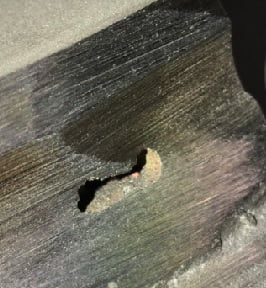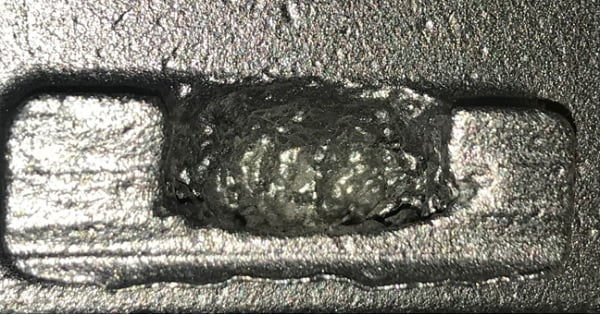Published - 17th Jun 2019
 As discussed in Part 1 of our “Casting Defects” Blog there are numerous opportunities for problems to present themselves in the complex Investment Casting process, resulting in a variety of casting defects.
As discussed in Part 1 of our “Casting Defects” Blog there are numerous opportunities for problems to present themselves in the complex Investment Casting process, resulting in a variety of casting defects.
Understanding the causes of these defects is essential to both maintaining casting quality and enabling the correct remedial action to be undertaken.
One common casting defect is shrinkage porosity/cavitation which can weaken the integrity of the part and cause it to fail in service.
There are multiple causes of shrinkage type defects in castings; these include poor feeding and incorrect metal pouring and mould temperatures.
Strict control of the metal temperature is achieved at Investacast by the use of bespoke Laser Pyrometer technology.
We utilise the latest casting simulation software to simulate the total casting process to ensure the correct feeding system is adopted for the part. This simulation process is undertaken at the start of every product development and ensures that we achieve sound product every time.
Other casting defects include ceramic inclusions (these inclusions can occur as a result of poor process control of the ceramic shelling process), poor casting designs or poor housekeeping practices.
Investacast work closely with our customers’ design teams to ensure the casting design has adequate internal radii, good sectional transitions and minimal isolated heavy sections. Our casting simulation software proof tests customer designs at the earliest stage to ensure a satisfactory design.
Our state-of-the-art shell room and highly trained process engineering staff ensure that all process parameters are met during production of the ceramic shell.
Porosity is one of the most common defects across the casting industry in all casting processes.

Certain alloys are more prone to porosity than others and foundries adopt a variety of measures to reduce porosity; including pre-cast degassing, vacuum casting, Argon shielding and meticulous melt control.
Investacast work with the UK’s leading foundry metal treatment supplier to ensure our entire alloy base grades (Nickel, Copper, Aluminium, Cobalt and Steels) are pre-cast treated to minimise the occurrence of gas porosity in our parts.
By utilising the most modern casting simulation software, working with customers at the earliest stage of design and adopting best industry practices in terms of process controls, Investacast achieve exceptionally low defects rates compared to the industry average.
If you would like further information about the content of this blog or to understand more about our casting capabilities, please contact Investacast +44 (0)1271 866200 or email [email protected].
If you have a project, talk to our experienced sales team
Contact us